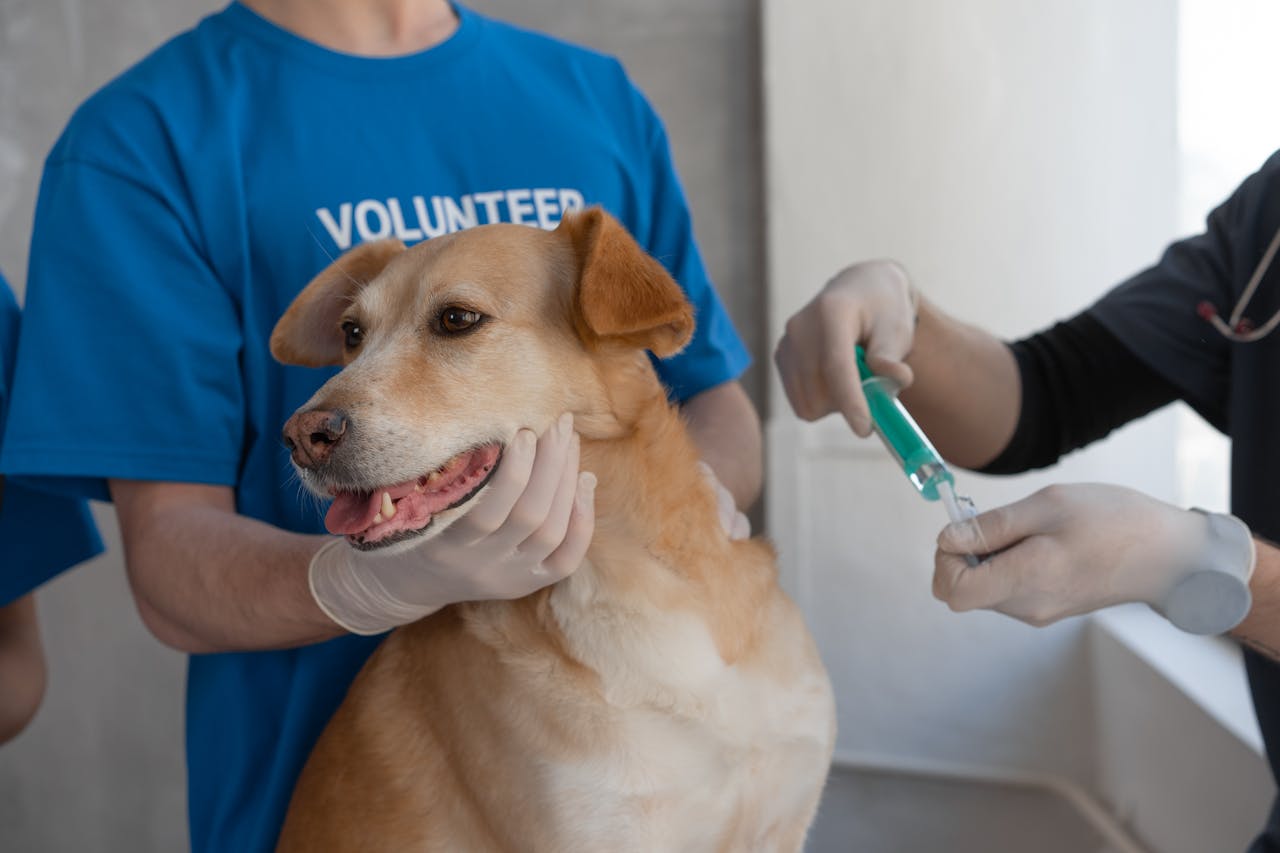Understanding Pet Vaccination: What You Need To Know

Pet vaccinations are a crucial part of keeping your furry companions healthy and protected. Just like humans, pets are vulnerable to various diseases, some of which can be life-threatening. Vaccinations help build your pet's immunity, preventing illnesses and ensuring they live a long, healthy life. Whether you're a new pet owner or an experienced one, understanding the importance of vaccinations, when they are needed, and how they work can help you make informed decisions about your pet's healthcare. In this article, we'll cover the basics of pet vaccinations and why they're essential for your pet's well-being.
Vaccines are essential in preventing various illnesses in pets, and vaccinating your pet is one of the simplest ways to ensure a long, healthy life. Different vaccines protect against different diseases, but not every pet requires every vaccine. It's crucial to discuss a tailored vaccination plan with your veterinarian, taking into account factors such as age, medical history, environment, travel habits, and lifestyle. Most vets recommend core vaccines for healthy pets, but your vet can help create a personalized vaccination schedule that offers the best and safest protection for your pet.
Vaccines protect pets by introducing a small, harmless part of a disease-causing organism into their body, either in a killed or inactivated form, or a fragment of its genetic material. This triggers the animal's immune system to recognize the foreign substance as a threat, prompting an immune response. The body then produces antibodies and activates immune cells that will "remember" how to fight off the disease in the future. Pet vaccinations are often given in a series at specific intervals, and completing the full series is essential for ensuring your pet is fully protected.
The most common vaccinations for dogs and cats are: Canine distemper is a highly contagious virus that affects dogs and other canids like foxes and wolves, attacking their respiratory, gastrointestinal, and nervous systems. Feline leukemia (FeLV) is a virus that weakens the immune system in cats and spreads through close contact, such as sharing food bowls or grooming. Rabies, a virus affecting all warm-blooded animals including dogs, cats, and humans, is transmitted through the saliva of infected animals, typically via bites.
Common vaccinations are: Canine distemper is a highly contagious virus that affects dogs and other canids like foxes and wolves, attacking their respiratory, gastrointestinal, and nervous systems. Feline leukemia (FeLV) is a virus that weakens the immune system in cats and spreads through close contact, such as sharing food bowls or grooming. Rabies, a virus affecting all warm-blooded animals including dogs, cats, and humans, is transmitted through the saliva of infected animals, typically via bites.
For puppies: If the mother has a strong immune system, a puppy will typically receive protective antibodies through her milk while nursing. However, these maternal antibodies begin to fade as the puppy grows, making vaccinations essential. Puppies should start receiving a series of vaccinations between six to eight weeks of age. To ensure full protection, a veterinarian will administer at least three rounds of vaccinations at intervals of three to four weeks. The final dose in this series should be given when the puppy is around 16 weeks old to provide optimal immunity.
For dogs, core vaccines are essential for protecting against life-threatening diseases that pose significant risks to all dogs, regardless of their environment or lifestyle. These core vaccines include protection against canine parvovirus, distemper, canine hepatitis, and rabies. Canine parvovirus is a highly contagious virus that attacks the gastrointestinal system, often with fatal consequences, especially in puppies. Distemper affects the respiratory, gastrointestinal, and nervous systems, while canine hepatitis targets the liver, and rabies is a fatal virus transmissible to humans.
In addition to core vaccines, non-core vaccines may be recommended based on a dog's specific risk factors. These vaccines protect against diseases such as Bordetella (kennel cough), Lyme disease, or leptospirosis, which are more likely in certain geographic areas or for dogs that have frequent outdoor exposure or interaction with other animals. Discussing your dog's lifestyle, including their activities and environment, with your veterinarian will help determine if any non-core vaccines are necessary for optimal protection.
Kittens receive essential antibodies through their mother's milk if she has a strong immune system. Vaccinations can start when the kitten is around six to eight weeks old. Your veterinarian will administer a series of vaccines at three- to four-week intervals until the kitten reaches 16 weeks of age, ensuring they receive proper protection during this critical growth period.
For cats, core vaccines are essential to protect against widespread and potentially fatal diseases. These core vaccines include those for panleukopenia (commonly known as feline distemper), feline calicivirus, feline herpesvirus type I (rhinotracheitis), and rabies. Panleukopenia is a highly contagious viral infection that attacks the immune system and is often fatal, especially in kittens. Feline calicivirus and herpesvirus are both major causes of upper respiratory infections in cats, and rabies is a deadly virus that affects all warm-blooded animals, including humans.
In addition to core vaccines, non-core vaccines are administered based on a cat's individual lifestyle and risk factors. Cats that spend time outdoors, live in multi-cat households, or are frequently exposed to other animals may benefit from additional protection. Non-core vaccines include those for feline leukemia virus (FeLV), which weakens the immune system and is spread through close contact with infected cats. Other non-core vaccines target diseases like Bordetella, a bacteria associated with respiratory infections, Chlamydophila felis, which causes conjunctivitis, and feline immunodeficiency virus (FIV), a virus that compromises the immune system.
It's crucial to tailor a vaccination schedule plan to your cat's environment and lifestyle. Your veterinarian can help determine the right combination of core and non-core vaccines, ensuring your cat is protected against the diseases they're most likely to encounter.
Similar to humans, immunizations for animals lightly stimulate the immune system to provide protection against specific infectious diseases. This stimulation can lead to mild symptoms, such as soreness at the injection site, fever, or even allergic reactions.
Many states have laws concerning mandatory vaccinations for pets, particularly for the rabies vaccine. The regulations vary by state; some require annual rabies vaccinations, while others mandate them every three years. In nearly all states, proof of rabies vaccination is a legal requirement. It's essential to consult your state's policy for specific vaccination requirements and guidelines.
In conclusion, pet vaccinations play a vital role in ensuring the health and well-being of our furry companions. By protecting against serious diseases, vaccinations not only safeguard individual pets but also contribute to the overall health of the community by preventing outbreaks. It's essential for pet owners to work closely with their veterinarians to develop a vaccination plan tailored to their pet's specific needs, lifestyle, and environment. Regular vaccinations, alongside routine veterinary check-ups, will help your pet lead a long, healthy life filled with joy and companionship. Remember, a vaccinated pet is a happy and healthy pet!
-
Posted in
pet vaccination




